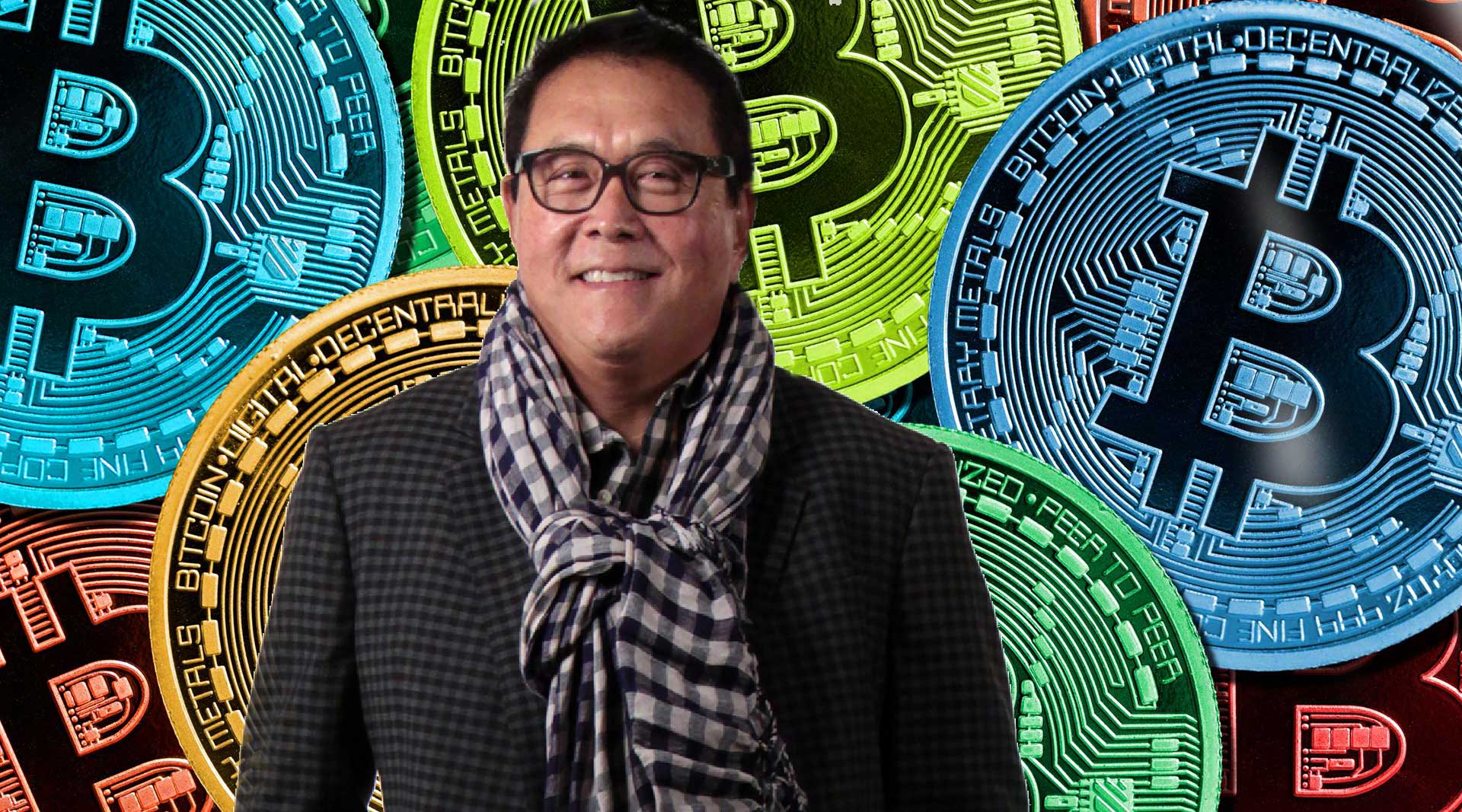Robert Kiyosaki Says Crypto Is Key to Building Wealth in a Failing System
27.06.2025 10:00 1 min. read Alexander Stefanov
Personal finance author Robert Kiyosaki is urging investors to rethink their approach to money as digital assets reshape the economic landscape.
In a recent social media post, the Rich Dad Poor Dad writer highlighted how cryptocurrencies—particularly Bitcoin—are enabling individuals to bypass traditional financial hurdles and gain access to real wealth-building opportunities.
Kiyosaki pointed to the growing use of digital currency in sectors like real estate as a sign that crypto is no longer speculative—it’s becoming a legitimate tool for acquiring tangible assets. He called the shift toward “cyber money” a major leap forward for individual investors, making it easier to grow wealth with lower risk.
For years, Kiyosaki has warned about the instability of fiat currencies and what he sees as an inevitable collapse of the global financial system. His message remains clear: protect your wealth by turning to real assets. Gold, silver, and Bitcoin are at the core of his strategy, with silver now gaining more of his attention due to its industrial demand and undervalued market position.
As financial systems evolve and digital tools become more accessible, Kiyosaki believes only those who adapt and educate themselves will thrive in what he calls an “insane new world” of fake versus real money.
-
1
Robert Kiyosaki Buys More Bitcoin, Says He’d Rather Be a ‘Sucker Than a Loser’
02.07.2025 22:00 1 min. read -
2
This Week in Crypto: Whale Accumulation, Ethereum Signals, and a Sentiment Shake-Up
05.07.2025 21:00 3 min. read -
3
BlackRock’s IBIT Bitcoin ETF Surpasses 700,000 BTC in Record Time
08.07.2025 19:00 2 min. read -
4
Veteran Trader Peter Brandt Shares Simple Wealth Strategy with Bitcoin at Its Core
30.06.2025 15:00 2 min. read -
5
Bitcoin Tops Crypto Social Buzz as $110,000 Milestone Fuels Market Debate
04.07.2025 8:15 3 min. read
Bitcoin ETFs Attract Over $2 billion in Weekly Inflows: What’s Driving the Gains?
Bitcoin ETFs in the U.S. recorded $2.39 billion in net inflows over the past week, according to data from Farside Investors, marking one of the strongest capital surges since their launch.
Weekly Crypto Roundup: Bitcoin Hits ATH, Ethereum Surges, Trump Advances Crypto Reforms
Analyzing the latest updates shared by Wu Blockchain, this past week underscored a pivotal shift in the crypto landscape. Bitcoin surged to a new all-time high of $123,226, pushing the overall crypto market cap beyond $4 trillion—a milestone reflecting renewed investor confidence and accelerating institutional flows.
Over $5.8 Billion in Ethereum and Bitcoin Options Expired Today: What to Expect?
According to data shared by Wu Blockchain, over $5.8 billion in crypto options expired today, with Ethereum leading the action.
IMF Disputes El Salvador’s Bitcoin Purchases, Cites Asset Consolidation
A new report from the International Monetary Fund (IMF) suggests that El Salvador’s recent Bitcoin accumulation may not stem from ongoing purchases, but rather from a reshuffling of assets across government-controlled wallets.
-
1
Robert Kiyosaki Buys More Bitcoin, Says He’d Rather Be a ‘Sucker Than a Loser’
02.07.2025 22:00 1 min. read -
2
This Week in Crypto: Whale Accumulation, Ethereum Signals, and a Sentiment Shake-Up
05.07.2025 21:00 3 min. read -
3
BlackRock’s IBIT Bitcoin ETF Surpasses 700,000 BTC in Record Time
08.07.2025 19:00 2 min. read -
4
Veteran Trader Peter Brandt Shares Simple Wealth Strategy with Bitcoin at Its Core
30.06.2025 15:00 2 min. read -
5
Bitcoin Tops Crypto Social Buzz as $110,000 Milestone Fuels Market Debate
04.07.2025 8:15 3 min. read


